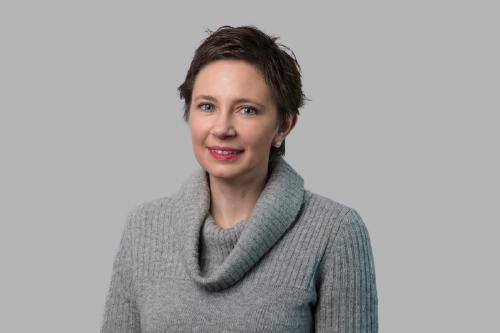It's OK to Major in English or History
...and you might even save the world
I have reached that time in life when my child is choosing which subjects to study for exams. As most parents acknowledge, our influence is limited and must be exercised through intricate ‘nudging’ that would make an economist proud. But in which direction should we nudge? Computer science, engineering and robotics are winning the PR war. Who wouldn’t want to work in a flashy office with bean bags and a messianic boss? Who needs history and English when Chat GPT can (approximately) tell you the causes of World War 1?
The number of students enrolling in History and English undergraduate degrees in the UK has declined dramatically in recent years. According to the British Academy, English Studies undergraduate students fell by 29% between 2012 and 20211. The story is similar for history, where the number of undergraduates has fallen by 17% between 2014/15 and 2019/202. This broad decline in the uptake of humanities subjects is not restricted to the UK. Last year the New Yorker ran an article stating that the number of History and English majors in the US has fallen by half between 2012 and the start of the pandemic3.

Is it worth betting on an unpopular subject? Yes. Back in the 1990s and early 2000s, it was not English professors wringing their hands worrying about the future of their department, it was physicists. Between 1994 and 2004, 17 UK university physics departments admitting more than ten students per year closed. The number of full time UK domiciled students opting to study physics fell by 29% over the same period. Physics uptake reached a low in 2006 before recovering4. It seems strange now, with the focus on science and technology, that the study of physics was ever in trouble. Could the same happen to history courses?
The great replacement
It is notoriously difficult to predict what skills will be needed in the future, but just like in the 1990’s we are in the middle of a profound technological shift. Yuval Noah Harari discusses the replacement of humans with algorithms, which will write stories, compose music, and do most of our jobs better than we ever did. He raises the possibility of an unemployable class, who add nothing to society. The figures he gives are startling, suggesting that there is a 98% chance sports referees will be replaced, 97% chance cashiers will, 94% waiters, 91% tour guides, 89% bakers. On the upside, he suggests virtual world builders will be in demand. Surely the best hope of escaping this fate is studying engineering or computer science? Someone will have to build and maintain the AI systems after all, and it may as well be you.

There are two objections. Firstly, Philip K Dick was on to something with his electric sheep. In his book, people yearn for a real animal despite being able to fool the neighbours with an electric version. Just because we can automate something doesn’t mean that we won’t pay over the odds for an analogue version, perhaps because it satisfies some need within us, or just because it’s a marker of status – what is rare or difficult to get is valuable. Some of this is reflected in the premium charged for local, artisanal products vs mass produced versions.
Secondly, world building, whatever that turns out to be, sounds like something an English degree might help with. Making stuff up in ways that excite people is what story tellers have been doing for centuries. Perhaps creative writing courses will just have to re-brand themselves.

People as well as large-scale events, for example, the Durch Tulip Mania or the technology crash in the early 2000s, are sometimes said to be irrational. But what exactly do we mean by that?
Fighting the AI apocalypse
There are other indications that the social sciences should not be written off entirely. Some academics in the UK undertook a study to forecast problems with AI in the next 20 years or so, and the interventions that might be needed. Two of their five predictions (based on iterative interviews with experts) were:
-
Competition, both among states such as the United States and China and among big tech companies, will have led to corners being cut in the development of safe AI.
-
It will be more difficult to distinguish truth from fiction because widely accessible AI can mass generate doubtful content.
They proposed six mitigating strategies, including regulation and education, but also stated that: There was agreement that these issues are only partly technical and that addressing them requires social science expertise5.
They didn’t state which social sciences they had in mind, but history is as good as any other. How might studying history (or English for that matter, although it is a humanities subject rather than a social science) help prevent the AI apocalypse?
Ethical issues with AI are well rehearsed, so I won’t make the case for calling in your friendly neighbourhood philosopher. But suffice it to say, that if ethics is your thing, you’ll probably be in demand for some time to come.

As far as fake news goes, disentangling fact from fiction is the bread and butter work of historians. Consider the French Revolution. It happened ages ago, so we must know what happened, right? Wrong, historians are still trying to work out what exactly happened, and what it meant. Historians do agree that it started in 1789 and ended in 1799. The first descriptions of what happened were written at the time. By 1965, everyone thought the essence was the rise of the bourgeoisie and the toppling of the aristocracy. By 1980, nearly everyone accepted that it was not a social revolution but a political revolution. Since the 1980s, no single explanation has dominated. The diversity of interpretations includes cultural studies, gender based analyses, and explanations based on decolonisation. As students of history learn, facts are contested and often reflect the preoccupations and prejudices of those analysing the historical events – there is little neutral inquiry into ‘what really happened’. This doesn’t mean that there is no objective truth, just that getting to it often takes hard work. Many argue that neutral enquiry is also less prevalent in the sciences than we like to think. As ‘fact’ checking becomes more complex, a wide variety of skills will need to be brought to bear and it is arguable that a few social scientists here or there might be able to help.
So, should you study the social sciences, if that’s where your interests lie? Or should you go for a safer techy subject? Who knows, really. But not all that seems doomed is doomed, so stick with what you enjoy and will keep you motivated. It’s also too easy to see education as domain specific, but a good course in any subject should teach critical thinking, analysis, and argumentation. Or you could always just study philosophy, which is the best intellectual discipline ever. No AI system can procrastinate as effectively as a philosopher, nor as earnestly state ‘it depends on what you mean by…’ in response to every question.
Recommended reading
- Harari, Y. N. (2017). Homo Deus: a Brief History of Tomorrow. London: Vintage.
- Dick, P. K., & Dick, P. K. (1996). Do androids dream of electric sheep? New York, Ballantine Books.

Catherine Greene on Daily Philosophy:
Cover image by Redd F on Unsplash.
-
English degrees becoming more popular among students from Scotland but experiencing decade-long decline elsewhere in the UK, British Academy finds.. ↩︎
-
Student numbers in history in UK higher education: recent trends. ↩︎
-
PHYSICS IN SCHOOLS AND UNIVERSITIES II. Patterns and Policies. ↩︎
-
Interlinked Computing in 2040: Safety, Truth, Ownership, and Accountability. ↩︎





